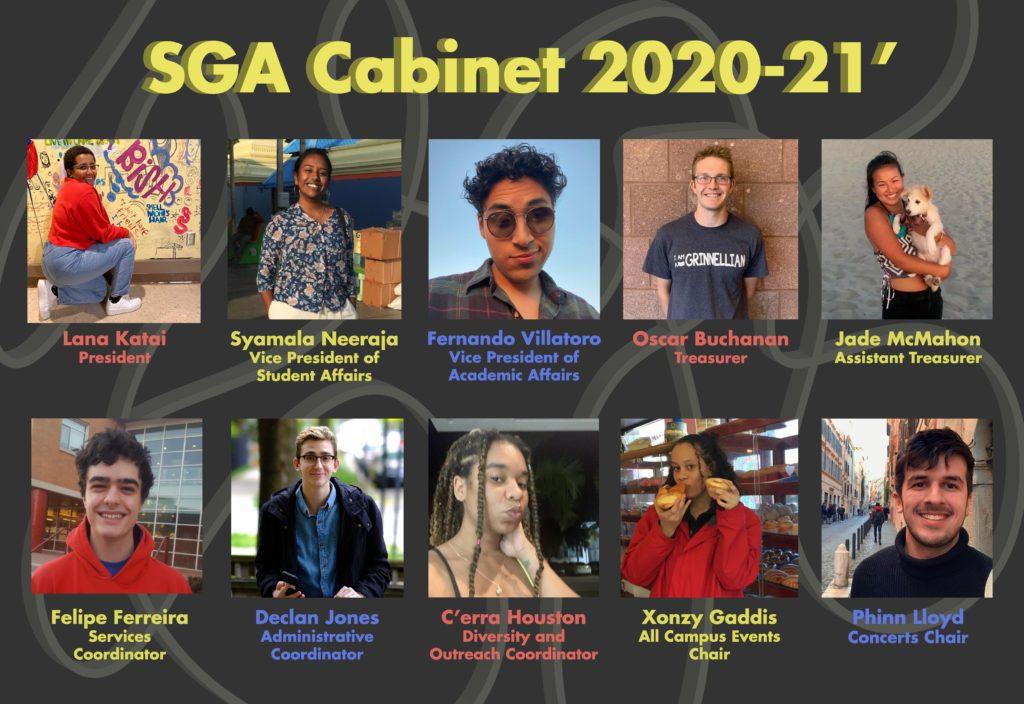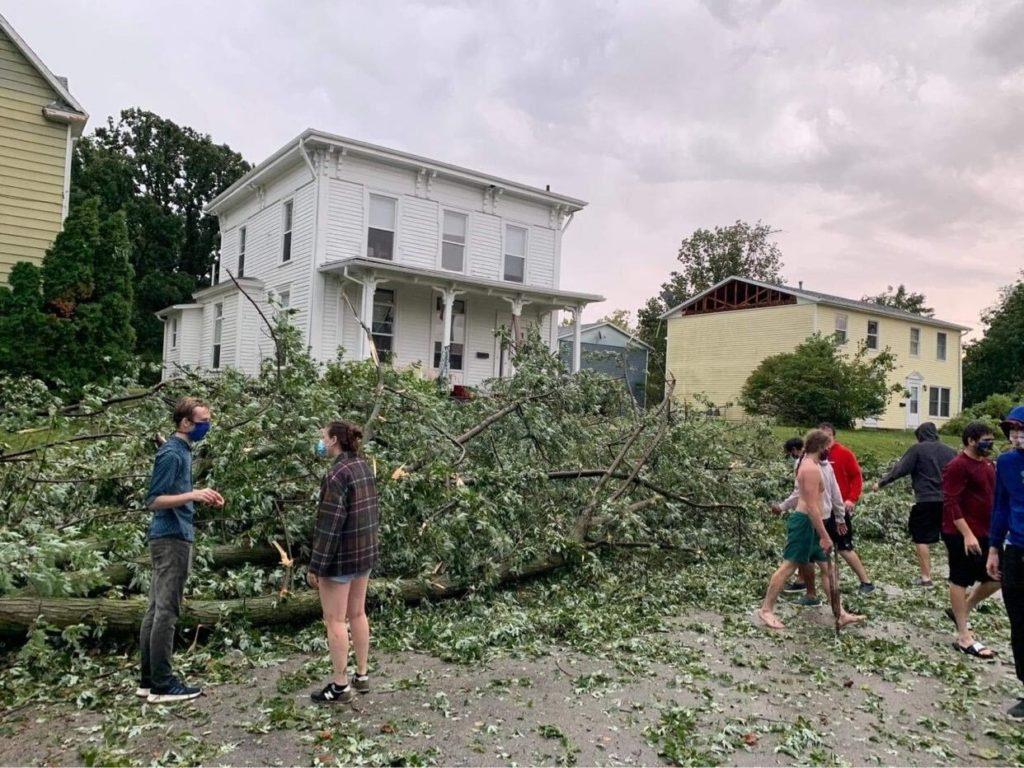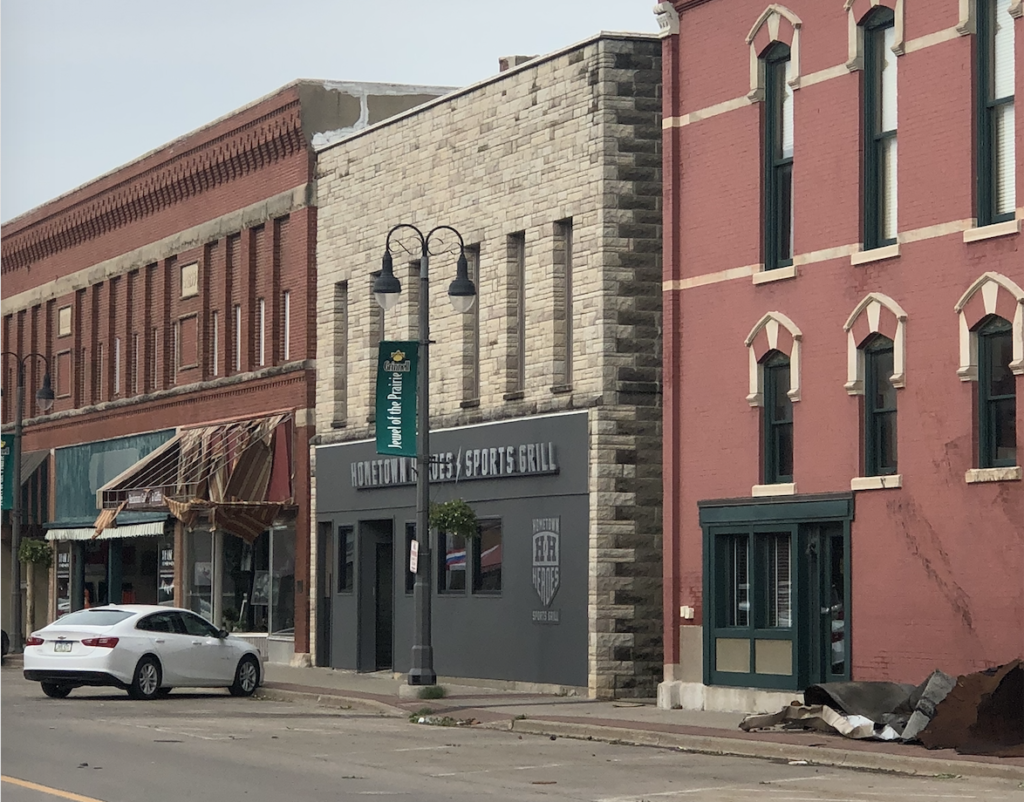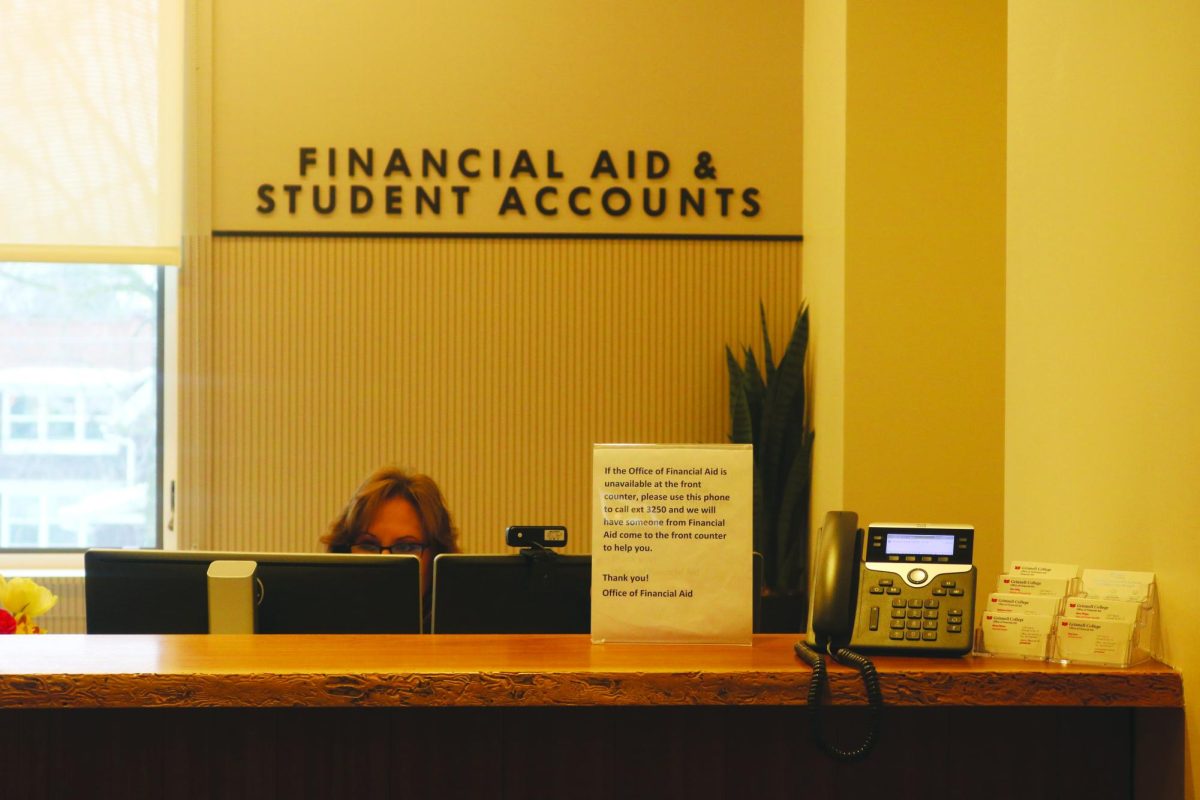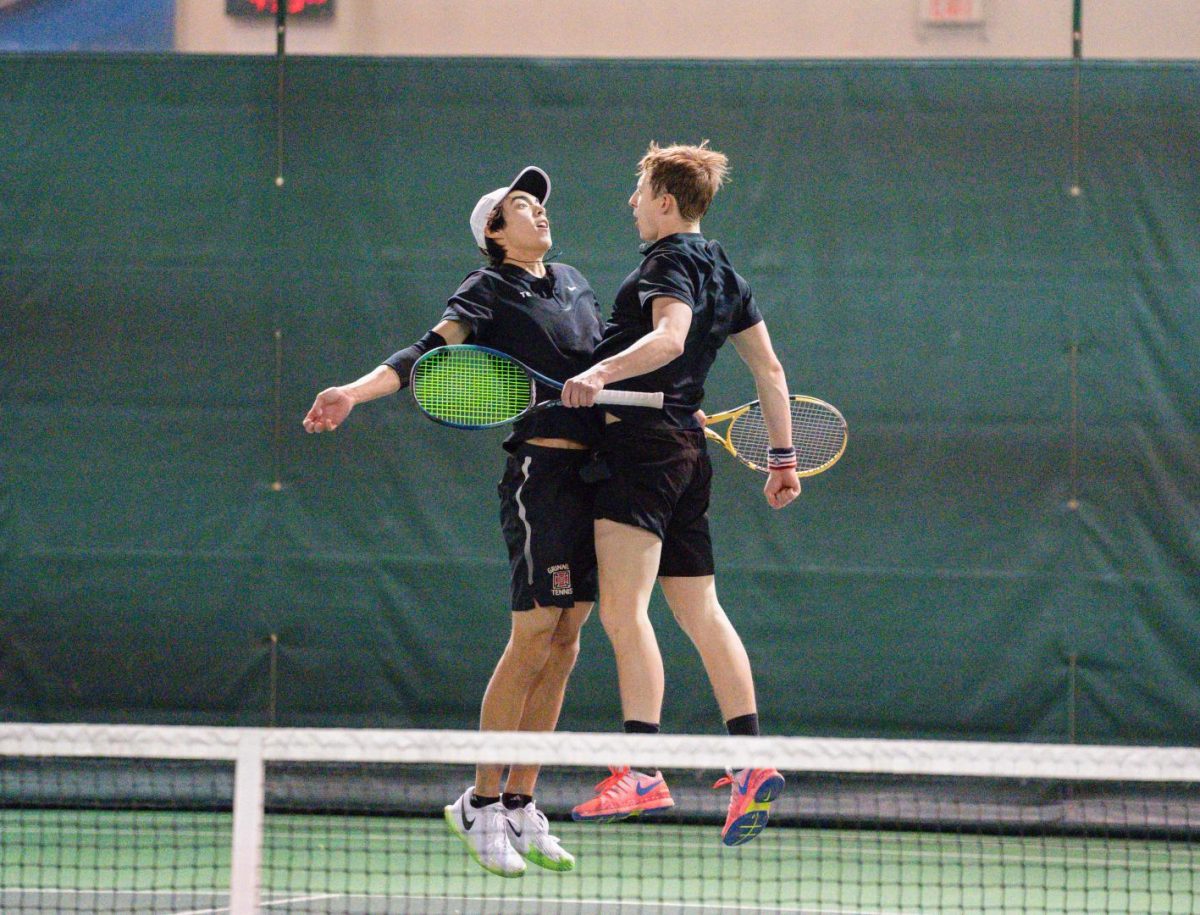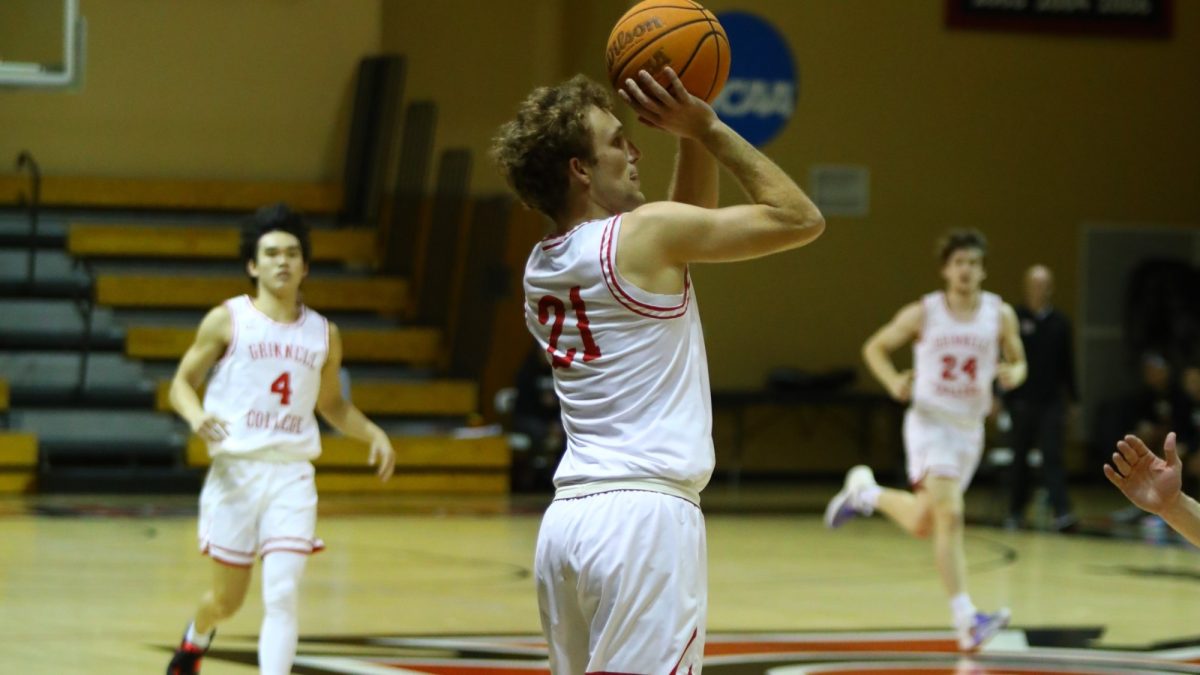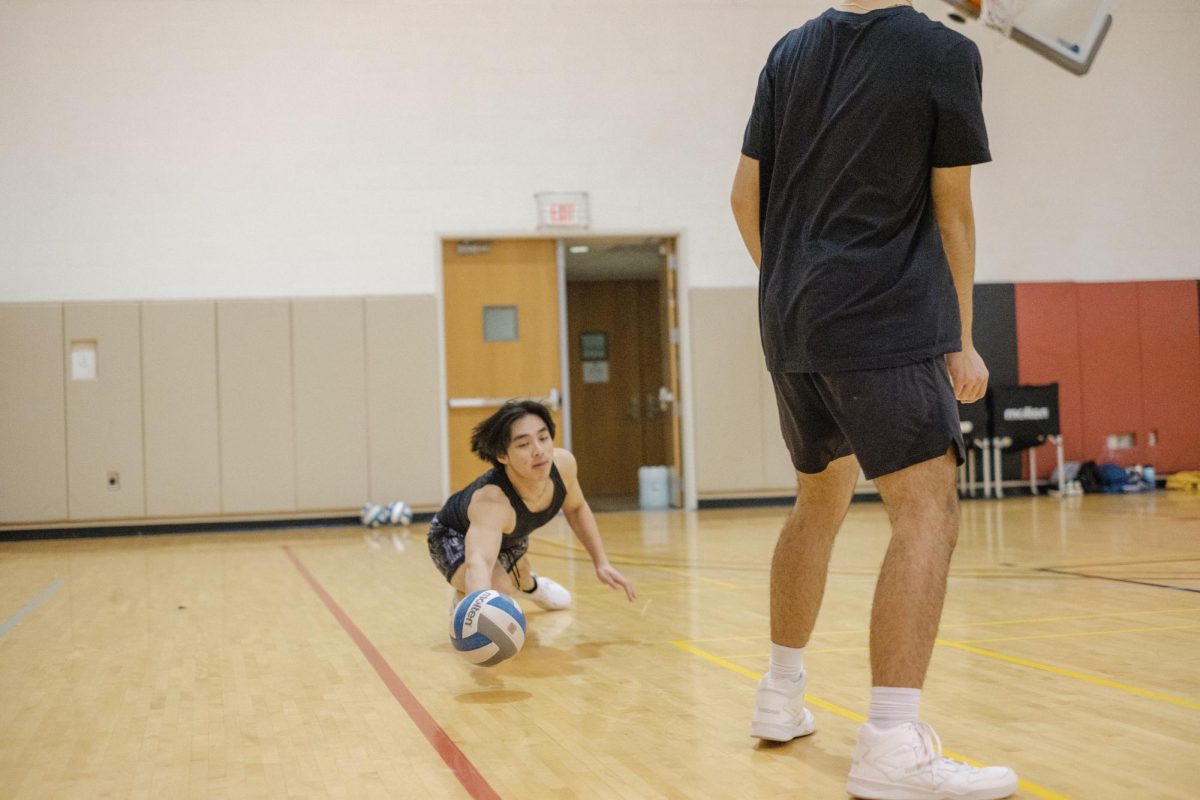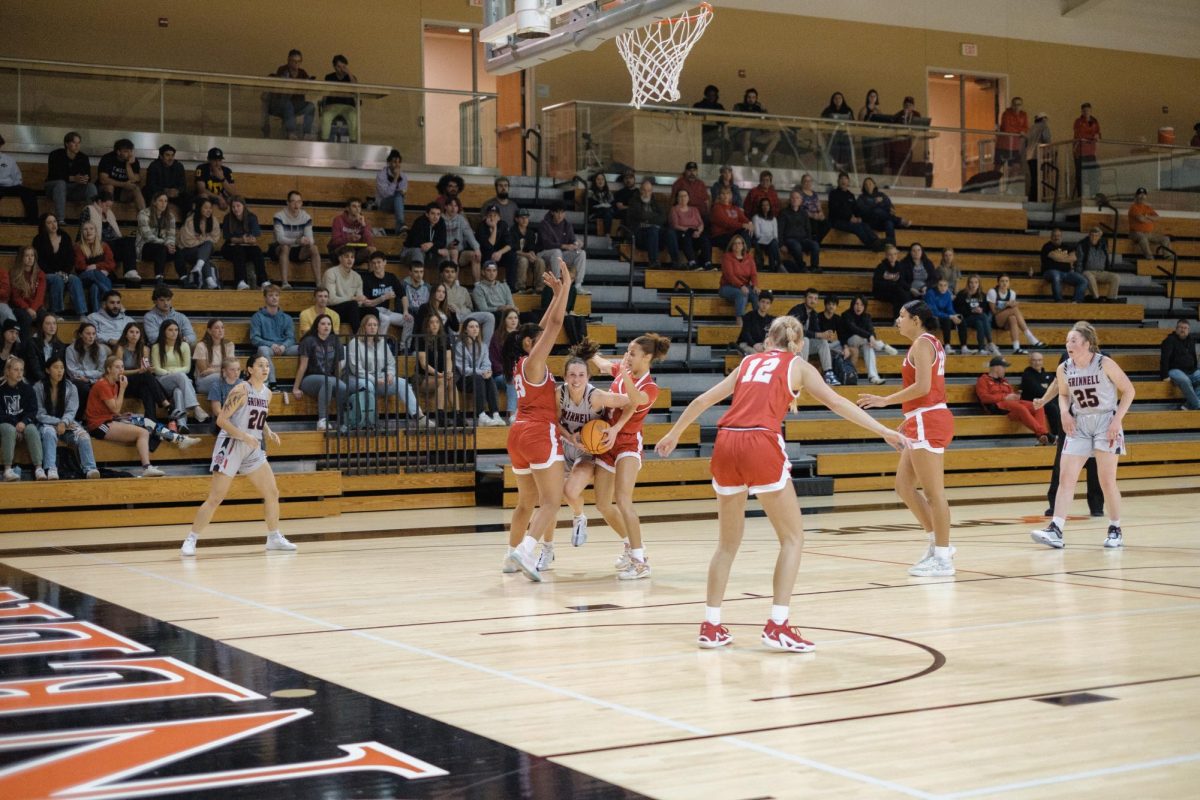The Student Government Association (SGA) Cabinet has spent the summer reimagining student government’s function at Grinnell College, taking temporary steps to adapt to the COVID-19 pandemic and implementing permanent anti-racist policies and goals.
After classes ended in the spring, SGA leaders were anticipating more work this summer in communicating with College admin, faculty and staff to plan the school year amid a pandemic. What they didn’t expect was a change within their own staff.
At the beginning of July, then-Vice President of Student Affairs (VPSA) Amelia Zoernig ’21 resigned in response to criticism that her approval of a jungle-themed Harris last semester harmed Black students.

Since then, former Diversity and Outreach Coordinator (DOC) Syamala Neeraja ’21 has temporarily stepped into the VPSA role and former senator and Reform Committee Chair C’Erra Houston ’21 has replaced her as interim DOC. Neeraja and Houston will serve in these roles until a special election to fill the positions is held at the end of September.
“I think as a whole, SGA has been trying to reckon with the fact that everything that went down with the past VPSA,” said Houston. “We’ve really been focusing on how SGA can be actively anti-racist and how it can actually be an advocacy group for students and make this campus better for students, because we have actively harmed students in the past.”
On Friday, August 21, SGA released a statement of solidarity with the Black Lives Matter movement, laying out a clear list of action items to support Black students. Some of the goals include pushing for the College to cut their financial and institutional ties with Iowa Prison Industries, creating an anti-racist task force and dismantling “the culture of urgency, productivity, stress and overbooked scheduling at Grinnell College.”

While SGA has now stated their commitment to anti-racism publicly, they have been doing work behind the scenes the whole summer to accomplish these goals, such as examining the ways that SGA can support the demands of student activists like Raven McClendon ’22 and Errol Blackstone ’20.
“A lot of the anti-racist work that students are doing now, I don’t think they need an SGA President to, you know, give a thumbs up on that. They’re doing it themselves and they’re doing a great job at it,” said SGA President Lana Katai ’21. “SGA is often … very insular in that only the people that are in SGA care about SGA. I’d really love to get the organization to a place where it supports students near and far, wherever they’re at with their engagement.”
Internally, each cabinet member has been examining the ways their position can be used to combat racism and support BIPOC students. Neeraja has been having one-on-one conversations with her fellow cabinet members to identify immediate action steps they’ve begun to pursue this summer.

“It’s a very close and dedicated review of policies and practices for each role in SGA. Because I think that, you know, when we speak broadly about SGA that’s a bit unproductive,” said Neeraja. “And so, I think it’s forced us to take a closer look at the policies and practices within the institution, because that’s where the harm happens in the shadows, it’s behind closed doors.”
In response to reported incidents where professors have used racial slurs during class, Vice President of Academic Affairs Fernando Villatoro ’22 is leading an overhaul of the Student Educational Policy Committee (SEPC) infrastructure. Previously, SEPCs functioned differently between majors due to a lack of formal language as to how they should work and what student representatives are empowered to do.
Villatoro hopes that by codifying SEPC responsibilities and privileges and increasing training for SEPC representatives, students will be able to have a greater say in conversations dedicated to equity in academics.

“All these conversations that are happening [with faculty], they should include SEPCs too, because they’re the only form of student representation within academics,” said Villatoro. “I guess the whole effort is to legitimize SEPCs and student voices because a lot of times when students do these things, there have been so many inconsistencies … that have created a distrust among students in academics. They’re not really taking student voices seriously.”
Because of the elimination of the student activity fee for remote students, SGA is drawing their funds entirely from the rollover budget of about $300,000 left over from past years, as opposed to the roughly $800,000 they received in the 2019-2020 school year.
Katai said SGA is prioritizing the use of those funds to compensate students involved with Multicultural Leadership Council and other identity- and affinity-based groups, those who create a sense of belonging at Grinnell and will be particularly disadvantaged by the lack of an in person community. Due to the work those groups have done in the past and the work they will continue to do remotely, Katai said they deserve “more than a ‘thank you’ and a high five.”

This year, the budget process for student organizations will be much less rigid than usual. While the details are not yet worked out, Treasurer Oscar Buchanan ’21 said that instead of Student Senate voting on the budget, SGA will solicit feedback from all students on the SGA budget and share it publicly at the beginning of the year before finalizing it.
He also encouraged students with ideas for how they can use SGA funding to support their groups’ virtual existence to reach out.
Buchanan, Katai and Houston all emphasized the importance of directly engaging a wide range of students in a time when SGA operates in an entirely virtual capacity.
“I see this as a time to actually be able to take a step back and look at ourselves because … I think there’s an opportunity to increase engagement,” said Houston. “I think that things being virtual, it could either increase engagement or completely deplete it, and I think that’s up to us to actively try to get people to be excited about SGA and involved in SGA.”
“This crisis is absolutely awful, and it’s definitely constraining us, but it’s also forcing us to get serious about things that we wanted to get serious about for a long time,” said Buchanan. “And I think that that could have some great long-term impacts.”

















































